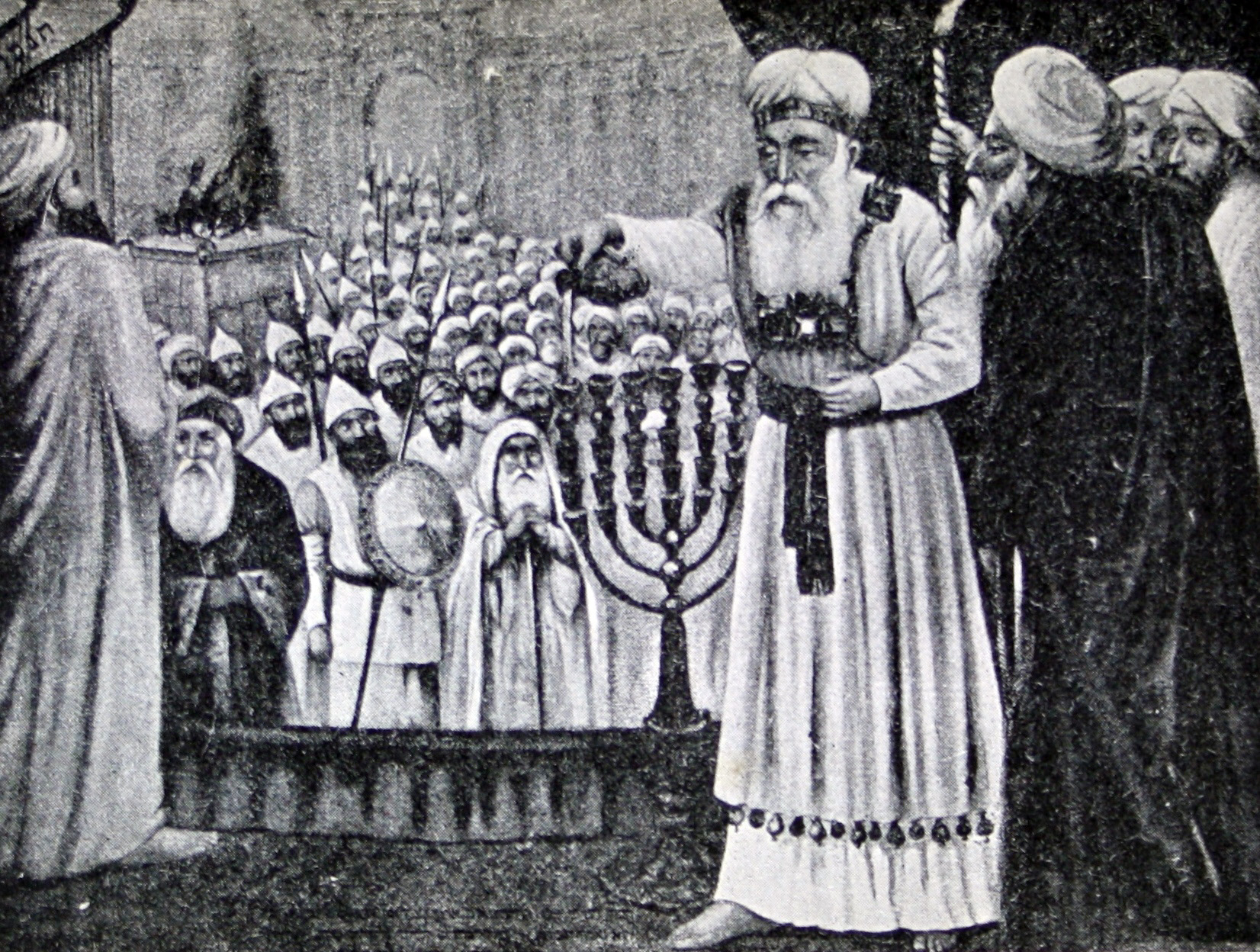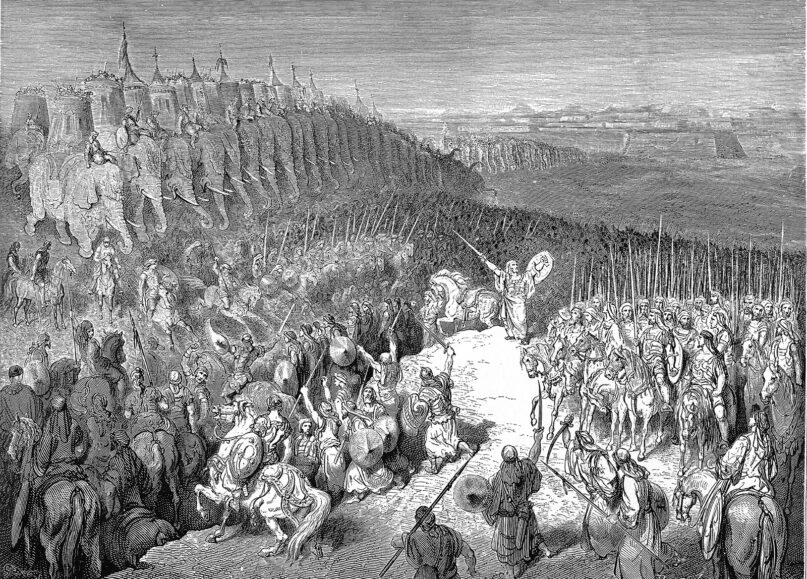(RNS) — Writing about a Jewish war, however ancient, is hard to do when the Jewish people are currently at war. And however we may choose to spin it, the Hanukkah story is inextricably linked to war. Hanukkah commemorates the Maccabean victory over the Seleucid Empire in the second century BCE. Its heroes and villains are understood differently in different tellings of the story, but it remains a war story, nonetheless.
In some versions of the Hanukkah story, the heroes are human soldiers — the Maccabees and those who fought alongside them. According to other versions, God is the hero of the story, making a miracle almost entirely divorced from human agency. According to some tellings, an antisemitic, religiously coercive, colonial power — the Seleucid Empire — is the enemy. And yet, according to others, the real bad guys are what some might call self-hating Jews who betrayed their people and their tradition, for personal power and wealth.
But whoever the heroes and villains were, the story of Hanukkah is not only the story of a people at war, but a story of victory in war. How do you celebrate an old victory when currently in the midst of a struggle that is far from over? And just as importantly, how do we deal with the typically triumphalist telling of the Hanukkah story, even as we are burying our dead, and struggling to remain as compassionate as possible for all civilians suffering, regardless of their national or ethnic identity?
One solution lies in perhaps the best-known part of the Hanukkah story — the miracle of the oil that burned longer and brighter than those who first lit it could have imagined. Amazingly, that story occurs not at the end of war, but even as it was still being fought. Yes, it was a moment of victory — reentering and purifying the ancient Temple in Jerusalem — but hardly the end of the war. And therein lies the story’s first genius — that even in the midst of war, we can dare to celebrate achievements we have already made.
Yes, the Jewish people are still at war now, and yes, the price being paid for victory is painfully high, for all sorts of people. Yes, there is plenty of grotesque antisemitism here in the U.S., both on the political left and the political right. And yes, it increasingly threatens publicly identified Jews, regardless of political affiliation or geographic location, be it a curbside in Los Angeles County, a falafel shop in Philadelphia or the campuses of our most prestigious universities, especially those whose leaders remain morally and pragmatically paralyzed in the face of such hatred. That too must be fought.

A high priest pours oil over a menorah. (Collections of the National Library of Israel/Wikipedia/Creative Commons)
And yet, as they did at the time of the original Hanukkah, when Jews were also engaged in battle, we can, and even must, find ways not only to celebrate that which has already been achieved, but also to see the possibility of even greater light in the world, even when there is so much darkness.
We can find the oil that is hidden, we can dare to light it, and trust that it can burn brighter than we might have reason to believe it will. In fact, had the ancient heroes of the story not done just that, there would be no Hanukkah story today. That was their job then, and it is our job today.
And the “our” is not only those of us celebrating Hanukkah. This Hanukkah wisdom is actually for all people and all times. We can all find ways to celebrate what is good in our lives and that which we have already achieved, even when life is far from perfect, and our achievements are painfully incomplete. We can all live into the possibility that the people and things around us have more to offer us than we initially imagine. We can all dare to invest in those people and things ahead of what we know will happen as a result.
Hanukkah differs this year from past years more than many of us can recall. Yet, those differences invite us back, almost 2,200 years, to the first Hanukkah. May we all be as bold as those first lamplighters were, not only in winning the fight, but in seeing light and possibility where it is not always immediately seen.
(Rabbi Brad Hirschfield is president of the National Jewish Center for Learning and Leadership, known as CLAL. The views expressed in this commentary do not necessarily reflect those of Religion News Service.)





